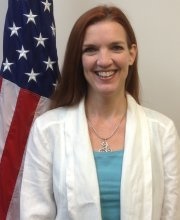CDP Presents: Addressing Guilt, Shame, and Anger in Three Different Models of PTSD Treatment. Prolonged Exposure Therapy, Written Exposure Therapy, and Brief Dynamic Therapy.
Credit Available - See Credits tab below.
Total Credits: 1.5 American Psychological Association (APA)
- Average Rating:
- Not yet rated
- Faculty:
- Paula Domenici, Ph.D. | David Riggs, Ph.D. | Jeanette Witter | Kelly Chrestman, Ph.D.
- Course Levels:
- Introductory
- Duration:
- 1 Hour 30 Minutes
- Media Type:
- Webinar
- License:
- Access for event date only.
Description
Many trauma survivors including service members and veterans struggle with trauma-related feelings of guilt, shame, and anger. Assisting clients to process these emotions is a key aspect of most evidence-based models of PTSD treatment, although there is some debate about which models are most effective for processing different kinds of emotions. In this panel discussion, subject matter experts will compare and contrast three different theoretical models for conceptualizing and addressing problems related to guilt, shame, and anger: Prolonged Exposure Therapy, Written Exposure Therapy, and Brief Dynamic Therapy. This discussion will be followed by commentary from David Riggs, Ph.D. and questions from the audience.
Target Audience: For behavioral health/healthcare providers who treat military personnel, veterans, and their families.
Instructional Level: Introductory
Learning Objectives:
Attendees will be able to:
-
Assess the rationale for addressing shame, guilt, and anger from the perspectives of Prolonged Exposure Therapy, Written Exposure Therapy, and Brief Dynamic Therapy.
-
Differentiate between Prolonged Exposure Therapy, Written Exposure Therapy, and Brief Dynamic Therapy in how each addresses trauma-related shame, guilt, and anger.
-
Evaluate the core elements of Prolonged Exposure Therapy, Written Exposure Therapy, and Brief Dynamic Therapy for addressing trauma-related shame, guilt, and anger.
Credits
The Center for Deployment Psychology is approved by the American Psychological Association to sponsor continuing education for psychologists. The Center for Deployment Psychology maintains responsibility for this program and its content.
Handouts
| CDP Presents Addressing Guilt, Shame, and Anger in Three Different Models of PTSD Treatment Prolonged Exposure Therapy, Written Exposure Therapy, and Brief Dynamic Therapy Slidedeck Handout (5.2 MB) | Available after Purchase | ||
Faculty
Paula Domenici, Ph.D. Related Seminars and Products
Psychologist
CDP
Paula Domenici, Ph.D., is a licensed counseling psychologist working as the director of Civilian Training Programs at the Center for Deployment Psychology (CDP) at the Uniformed Services University of the Health Sciences in Bethesda, Maryland. She oversees all civilian courses and training programs, and develops and presents workshops on deployment-related topics for military and civilian clinicians across the country.
Dr. Domenici specializes in war-related trauma and the treatment of Posttraumatic Stress Disorder. She also worked at the National Naval Medical Center, treating Navy personnel and Marines returning from Iraq and Afghanistan in the outpatient behavioral health clinic and inpatient casualty care unit.
Earlier in her career, she was an American Psychological Association Congressional Fellow at the Office of Senator Hillary Clinton, as well as a staff psychologist at the San Francisco Veterans Administration Medical Center. She is a co-author of two books, Courage after Fire: Coping Strategies for Troops Returning from Iraq and Afghanistan and Their Families; and Courage after Fire for Parents of Service Members: Strategies for Coping When Your Son or Daughter Returns from Deployment.

David Riggs, Ph.D. Related Seminars and Products
Deputy Director
Center for Deployment Psychology
David Riggs, Ph.D., is Professor and Chair, Department of Medical and Clinical Psychology (MPS) at the Hérbert School of Medicine at the Uniformed Services University of the Health Sciences in Bethesda, Maryland and also serves as the Executive Director of the Center for Deployment Psychology (CDP). As Professor and Chair of MPS, Dr. Riggs leads the Ph.D. program to train active duty psychologists for the military services as well as civilian clinical psychologists who train as scientist-practitioners to deliver outstanding patient care and contribute to clinically-relevant science in psychology. As Executive Director of the CDP, Dr. Riggs oversees the development and delivery of training seminars for behavioral health professionals to prepare them to provide for the needs of warriors and their families.
Dr. Riggs earned his doctorate at the State University of New York at Stony Brook and completed a clinical psychology internship at the Medical University of South Carolina. Prior to taking the position to lead CDP, Dr. Riggs held clinical research positions at the Center for the Treatment and Study of Anxiety at the University of Pennsylvania and the National Center for Posttraumatic Stress Disorder (PTSD) at the Boston Veterans Administration Medical Center.
As a clinical and research psychologist, much of Dr. Riggs’ work has focused on trauma, violence and anxiety with a particular interest in the impact of PTSD and other anxiety disorders on the families of those directly affected. He has trained and supervised numerous student and mental health professionals from the United States and other countries in techniques for treating PTSD, obsessive compulsive disorder (OCD) and other anxiety disorders. This included training professionals in ways to address the emotional and psychological needs of survivors of combat, international terror, natural disasters, and sexual and physical assault. Dr. Riggs has published more than 80 articles and book chapters and presented more than 250 papers and workshops on topics including PTSD, domestic violence, and behavioral therapy.
Jeanette Witter Related Seminars and Products
Dr. Witter is an Assistant Professor in the Department of Medical and Clinical Psychology at USU. She earned a PhD in Clinical and Community Psychology at The George Washington University in 1986. Dr. Witter is a psychotherapist who was trained in psychodynamic psychotherapy. She has worked with children, adolescents and adults with significant trauma histories throughout her career. Dr. Witter has a private practice where she primarily works with adult women with histories of childhood abuse and sexual trauma.
As an educator, Dr. Witter has taught as an adjunct faculty member in several graduate level clinical psychology programs since 2001. She joined the Medical and Clinical Psychology Department at USU as an adjunct faculty member in 2004. In 2010, she joined the faculty as an Assistant Professor responsible for teaching Brief Dynamic Psychotherapy, Ethics and Professional Practice, and Cultural Diversity. She also developed and co-taught a course, Trauma in the Military Context, with the USU Graduate School of Nursing.
Dr. Witter is a licensed psychologist in Maryland and Washington, DC. She is a member of APA, DCPA, MPA and the Society for Women in Psychology. She has served as a member of the Ethics committee of the District of Columbia Psychology Association for a number of years.

Kelly Chrestman, Ph.D. Related Seminars and Products
Senior Military Behavioral Health Psychologist
Center for Deployment Psychology
Kelly Chrestman, Ph.D., is a licensed clinical psychologist working as the lead for online consultation services at the Center for Deployment Psychology (CDP) at the Uniformed Services University of the Health Sciences in Bethesda, Maryland. In this capacity, she is responsible for the development of the CDP’s web based consultation services to DoD and military mental health providers.
Dr. Chrestman received her Bachelor of Arts degree from Rhodes College, Memphis, Tennessee and her Master of Arts and Doctor of Psychology degrees from Nova Southeastern University. She completed a clinical psychology internship at the University of Mississippi, Jackson VA Medical Center Consortium and postdoctoral training at the Women’s Health Sciences Division of the National Center for PTSD,Boston, Massachusetts. Prior to joining the CDP, she was a research scientist at Behavioral Tech Research, Inc. and a clinical psychologist at the Center for the Treatment and Study of Anxiety at the University of Pennsylvania.
As a clinical and research psychologist, much of Dr. Chrestman’s work has focused on trauma, violence and anxiety. She is particularly interested in the dissemination of empirically supported treatments, and using technology to improve the accessibility of treatment and training in community settings. She has trained numerous student and mental health professionals from the United States and other countries in techniques for treating PTSD and other anxiety disorders.
Dr. Chrestman is a co-author of Prolonged Exposure Therapy for Adolescents with PTSD: Emotional Processing of Traumatic Experiences (2008) and has authored several articles on community and professional responses to trauma, particularly domestic violence and sexual assault.


